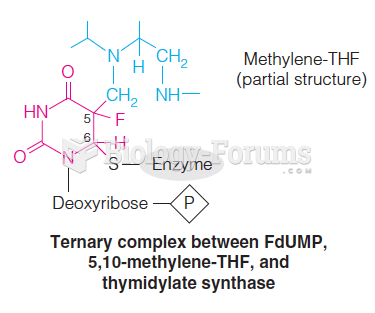|
|
|
Did you know?
Studies show that systolic blood pressure can be significantly lowered by taking statins. In fact, the higher the patient's baseline blood pressure, the greater the effect of statins on his or her blood pressure.
Did you know?
Malaria was not eliminated in the United States until 1951. The term eliminated means that no new cases arise in a country for 3 years.
Did you know?
Everyone has one nostril that is larger than the other.
Did you know?
Approximately 500,000 babies are born each year in the United States to teenage mothers.
Did you know?
Women are 50% to 75% more likely than men to experience an adverse drug reaction.







